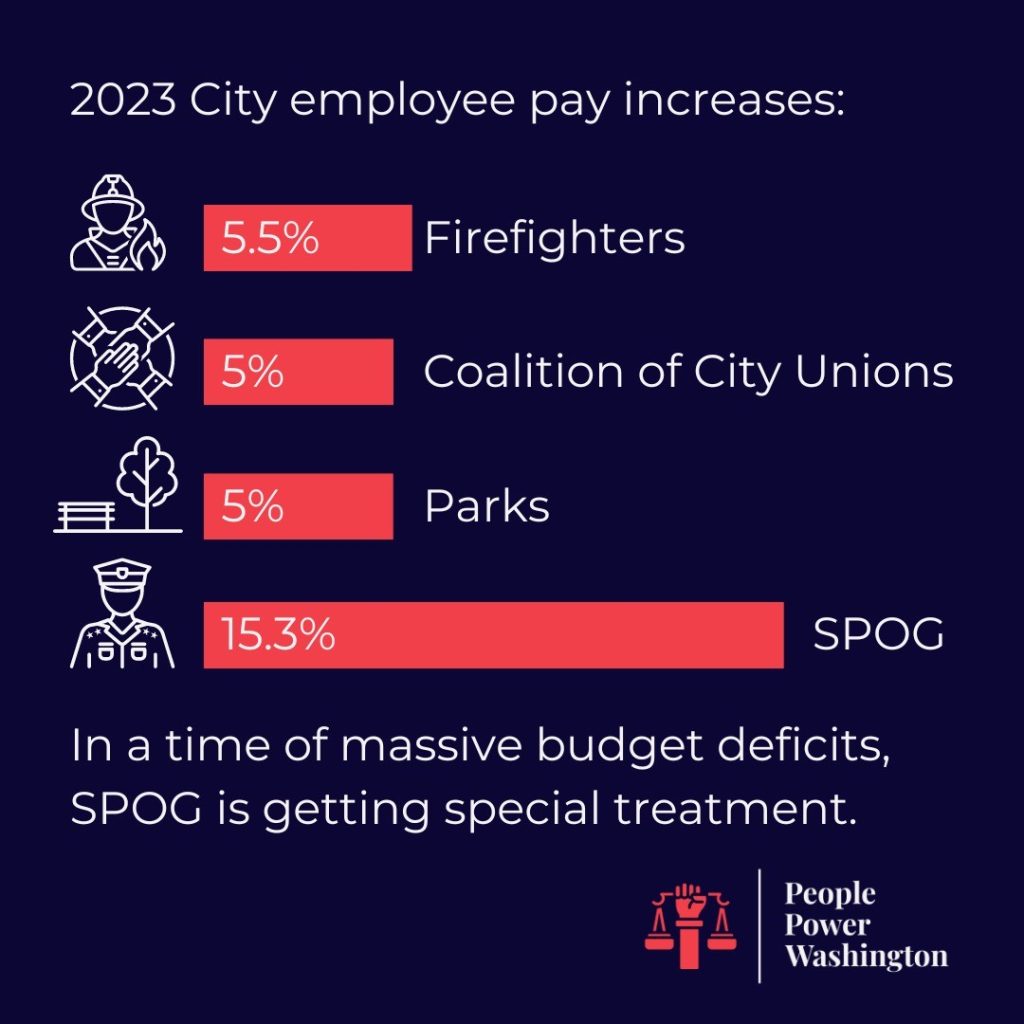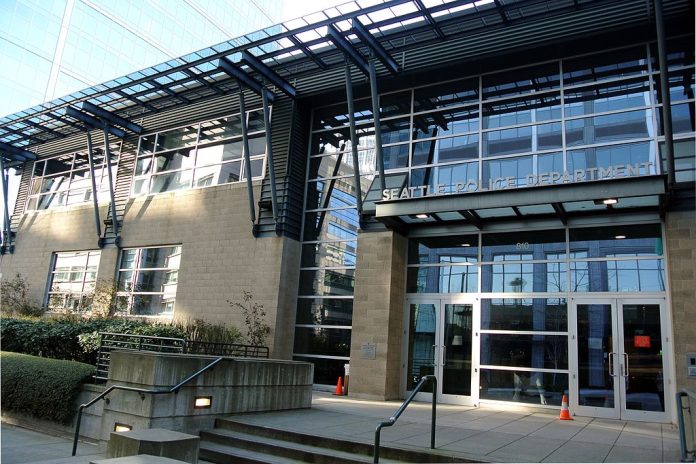The Seattle Police Department (SPD) has been described as a “transformed department,” but the long-awaited tentative agreement with the Seattle Police Officers Guild (SPOG) proves otherwise.
In May 2017, I attended a boisterous City Council meeting where police accountability legislation hailed as “landmark” was passed unanimously and celebrated by all. This legislation enabled steps in the right direction that honored community voices, made progress on removing Seattle from federal oversight, and underlay expected standards of behavior from SPD officers.
Then, only 18 months later, I stood in packed Council Chambers when the most recent SPOG contract was approved against the wishes of the community. In stark contrast to 2017, the November 2018 meeting was a huge disappointment.
Over and over, I heard community members come forward to speak and plead for preservation of the hard-won accountability system that the new contract would overturn. Though community members stressed that they recognized and respected SPOG’s right to participate in collective bargaining and that officers deserved a long overdue contract guaranteeing them a living wage, opponents argued that the urgency of increasing officer pay outweighed the community’s desire for a robust accountability system. Many councilmembers made similar statements, ignoring the fact that collective bargaining and police accountability are not mutually exclusive. In short, it felt that what the community was saying was being purposefully ignored.
It’s now five and a half years later and history is repeating itself.
If the tentative agreement with SPOG is accepted, they’ll receive increased benefits and retroactive pay increases amounting to 23%. In return, the City will get no meaningful accountability provisions. And the contract will already be expired once it’s ratified, as the agreement runs through December 31, 2023. The Seattle City Council has scheduled its vote on the SPOG contract Tuesday, May 14.
As a police accountability advocate, it’s difficult to understand why the City is giving up leverage in these negotiations with this half-contract – only one side is getting what they want and it covers three years instead of six.
Actions and results speak louder than words and intentions. When on the campaign trail, the mayor and Council, who now have control over these negotiations, said they wanted meaningful police accountability, a holistic public safety system and culture change in the Seattle Police Department. The SPOG contract is key to all of those purported values.

In the 2022 Seattle Police Management Association (SPMA) contract, among other important accountability changes, lieutenants and captains accepted revamping of the broken arbitration system and allowed subpoena power to our accountability bodies. SPOG hasn’t followed suit and remains under separate rules.
At the end of 2023, a Memorandum of Understanding (MOU) with SPOG upped officers’ special event bonuses and finally cleared the way for non-armed responders to participate in a limited capacity to calls SPD hasn’t had bandwidth to handle. However, the specifics of that MOU have left the program underutilized, almost as if it was set up to fail.
Much of the talk focused on hiring and recruitment to alleviate the officer shortage references hiring “the right kind of officer” that understands and represents the community they serve. Why would such candidates apply to work with those who’ve fought tooth and nail against everything community members have passionately asked for?
SPOG hasn’t demonstrated they want to change or understand the responsibility they have to maintain community trust. The City doesn’t have the political will or courage to stand up and deliver for its residents. City officials have expressed wishful thinking for a state legislative solution, but those of us watching know there’s been zero action on the issue at the legislature since a January 2021 public hearing.
Bewildered by the lack of meaningful change in this overdue contract, I can only conclude those in power are not serious about resolving the consent decree or building a public safety system that works for everyone. Unfortunately, what we’re seeing yet again is that the vision of what SPOG wants – to shield their members from accountability at the cost of public trust – trumps all.
Shannon Cheng is Chair of People Power Washington, a grassroots organization fighting for just and equitable public safety.




